Description
-
This large painting immerses you in the beauty of this blooming landscape. Cows graze peacefully in a lush meadow, surrounded by blooming wildflowers. The composition is rich in vibrant greens, accented by the golden hues of the flowers and the earthy tones of the path in the foreground. Tall trees create depth and form a natural canopy that complements the open blue sky above. The play of light and shadow adds a dynamic quality to the scene, evoking the warmth of a sunny day.
.
Isidore Verheyden was a prominent Belgian painter born in Antwerp in 1846 and passed away in Ixelles in 1905. He was the son of François Verheyden, a genre painter. He was only eleven years old when he entered the Brussels academy where he received training under Joseph Quinaux and later in the studio of Jean-François Portaels, who later became director of the Brussels academy.
Verheyden did not opt for a single painting specialty, but was just as good a portraitist and figure painter as a landscape and marine painter. This versatility, typical of his modernism, he shared with many progressive contemporaries and kindred spirits.
Verheyden enjoyed appreciation very early. He won gold at the Salon 1880 in Ghent and was appointed knight in the Order of Leopold that same year.
Initially working in a somber realist style, he later embraced impressionistic techniques, particularly focusing on light and texture..
In 1883 Verheyden went to live in Brussels, near his friend Constantin Meunier. The Brussels art world was going through a very exciting and turbulent phase. From this the Group Les XX would emerge in 1883, which grouped the most progressive artists of the moment, including Fernand Khnopff, James Ensor and Theo van Rysselberghe.
Camille Lemonnier, a Belgian French-speaking writer and art critic. testified in the catalogue of Verheyden’s studio sale (1910) “I knew him during my younger years, in the orchard at Groenendaal where I wrote “Un mâle”. While I watched him paint, I saw, as it were, the scenery of my book unfold before my eyes…” Lemonnier also mentions Verheyden’s boundless passion for the beauty of nature.



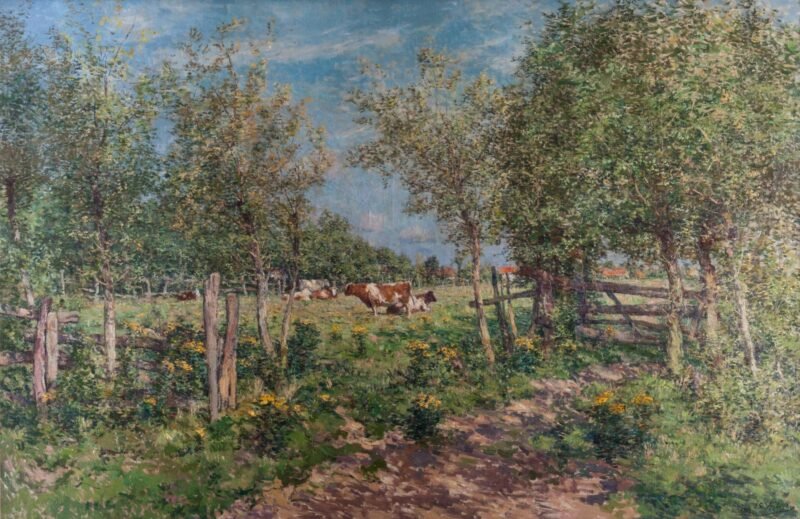
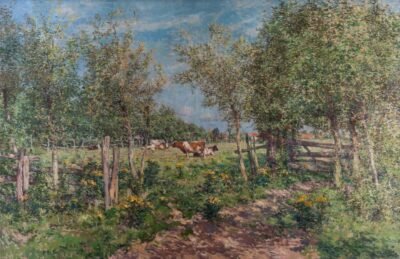
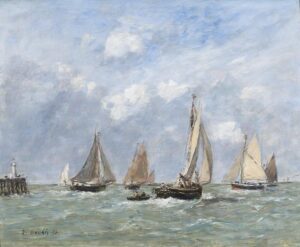
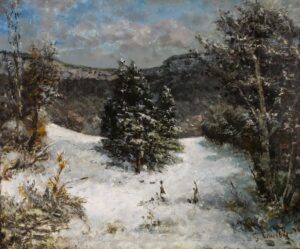

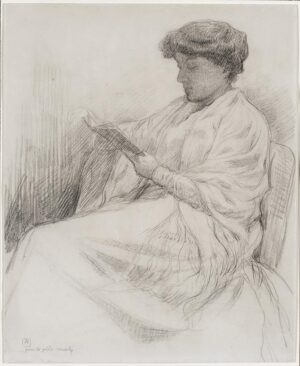
Reviews
There are no reviews yet.